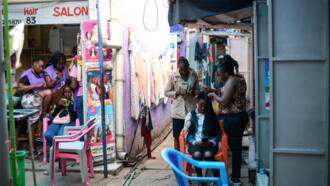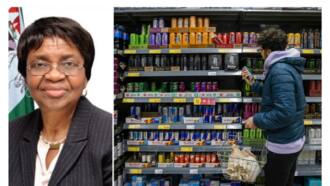Legit.ng Weekly Survey: Top 5 Nigerian Goods Whose Cost Price Increase Since 2015 and Why
The rise in food prices is occasioned by so many factors globally. The cost price of goods is influenced by certain factors such as government policy, seasonal factors, the economy, and the market environment.
In Nigeria, the cause of food inflation goes beyond the pandemic. Nigeria’s consumer price index (CPI) for food, which is used to measure the level of food inflation in the country, has risen by 263 percent under President Muhammadu Buhari’s administration.

Source: Facebook
Top five goods that have risen since 2015
This is evident in the cost of local produce and imported produce. The cost price of goods has increased by over 100 percent and has not dropped since 2015, even as Buhari's two-term in office expires on May 29, 2023.
As Buhari prepares to exit the office and return to Daura, his home state in Katsina, Legit.ng goes down memory lane and compiled a list of the top five Nigerian goods whose cost price has increased since the year 2015 to date;

Read also
Aliko Dangote's refinery finally opens as he pens 74-word message to Nigerians in rare social media post
PAY ATTENTION: Сheck out news that is picked exactly for YOU ➡️ find the “Recommended for you” block on the home page and enjoy!
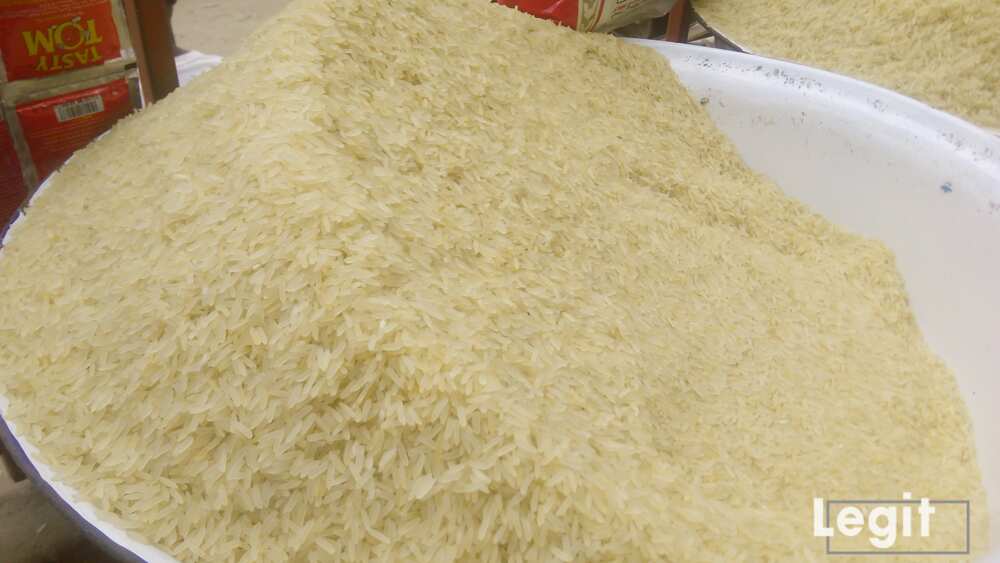
Source: Original
1. Rice
In Nigeria, we have local rice and foreign rice. Both items were affordable before Buhari assumed office. But after taking over power from former President Goodluck Jonathan, we saw an exorbitant rise in the cost price of local rice and foreign rice.
A bag of local rice which usually sells for N6,000 and N10,000 has increased to N28,000 while foreign rice that sells between N10,000 and N13,000 now sells for N35,000 upwards.
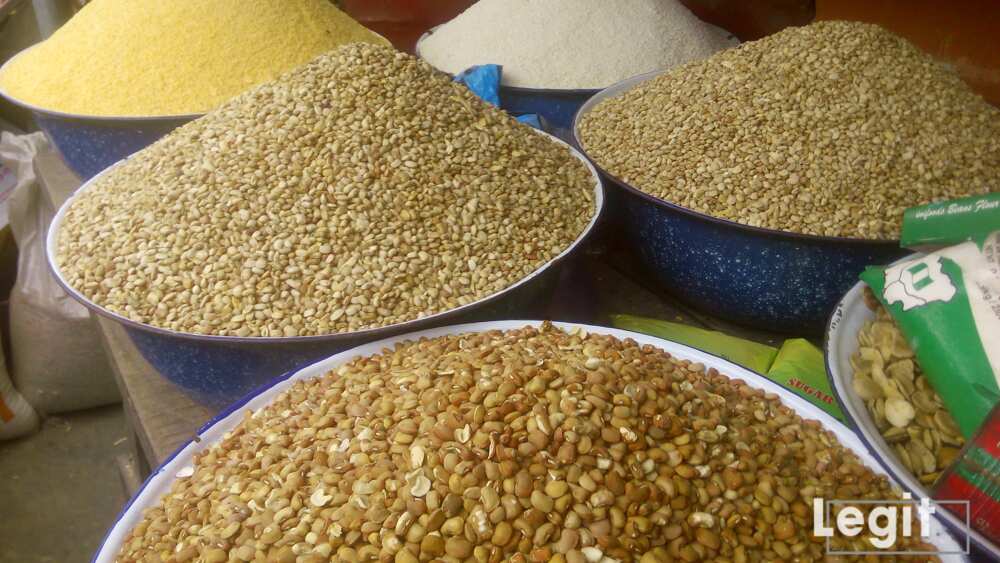
Source: Original
2. Beans
One basic food item whose cost price shocks many Nigerians since Buhari assumed office from the year 2015 till date, is Beans.
The increment in the cost price of beans was surprising to even traders who sell at wholesale price. At the moment, Oloyin beans whose cost price in previous years was sold from N19,000 and below, now sell for N28,000 and N30,000 upwards.
Interestingly, the size of the bag and the quantity in the bag, determine the cost price of beans. Beans, which is grown in the country, have become a food item beyond the reach of poor Nigerians. A bag of beans depending on the market visited and the type, (olotu, oloone, white beans) now sells from N50,000 and N55,000 upwards.
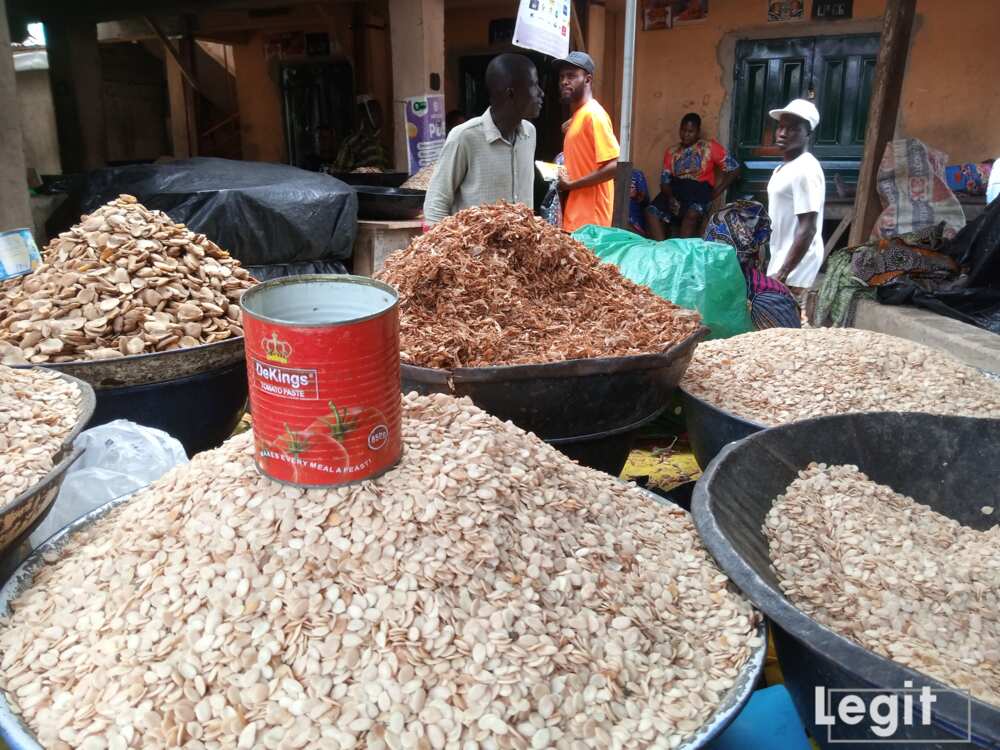
Source: Original
3. Egusi
Egusi is one foodstuff item whose cost price scares many Nigerians. A bag of egusi is sold from N40,000 and below before N2015 but the Buhari government has contributed to the increment in the cost price of egusi.
At the moment, a bag of egusi has risen to over N200,000 and some retailers are not even financially buoyant to purchase and resell because of its current price at the market.
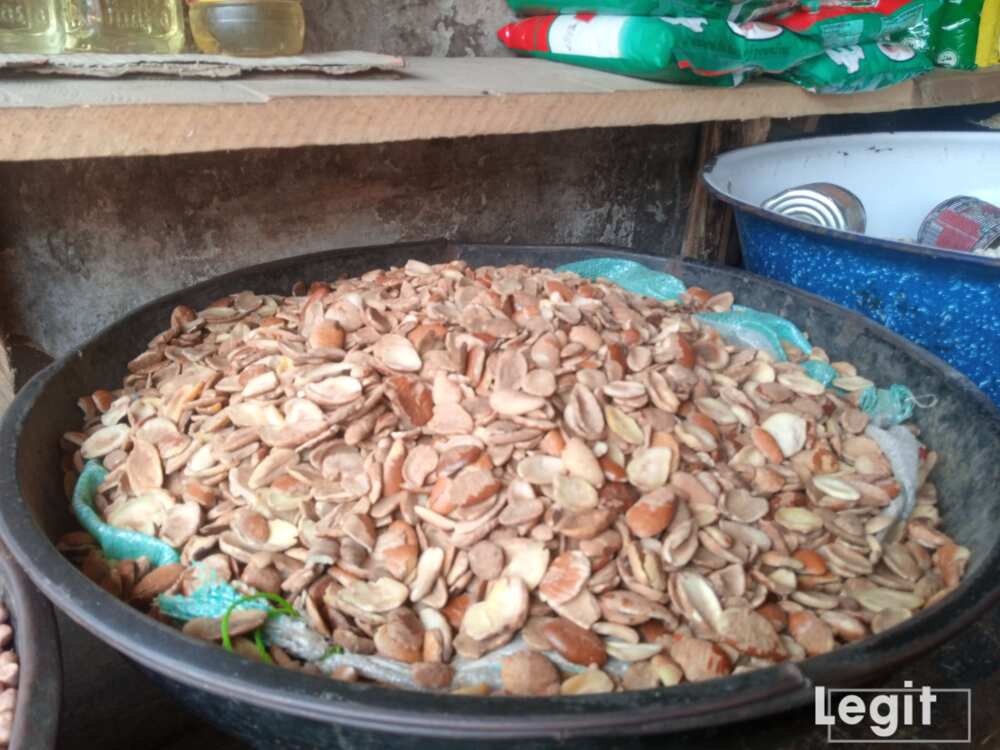
Source: Original
4. Ogbono
You can't mention egusi and leave out ogbono, they work hand in hand. Ogbono is one foodstuff item that has been very expensive but not compared to the period in which Buhari took over the helms of affairs of Nigeria.
During the tenure of former President Goodluck Jonathan, A bag of ogbono is sold between N60,000 and N75,000 or N80,000 but when Buhari took over it started rising gradually and it increased from N120,000 to N180,000 and now a bag sells from N200,000 and N210,000 upwards. Traders are groaning over this development at the market daily.
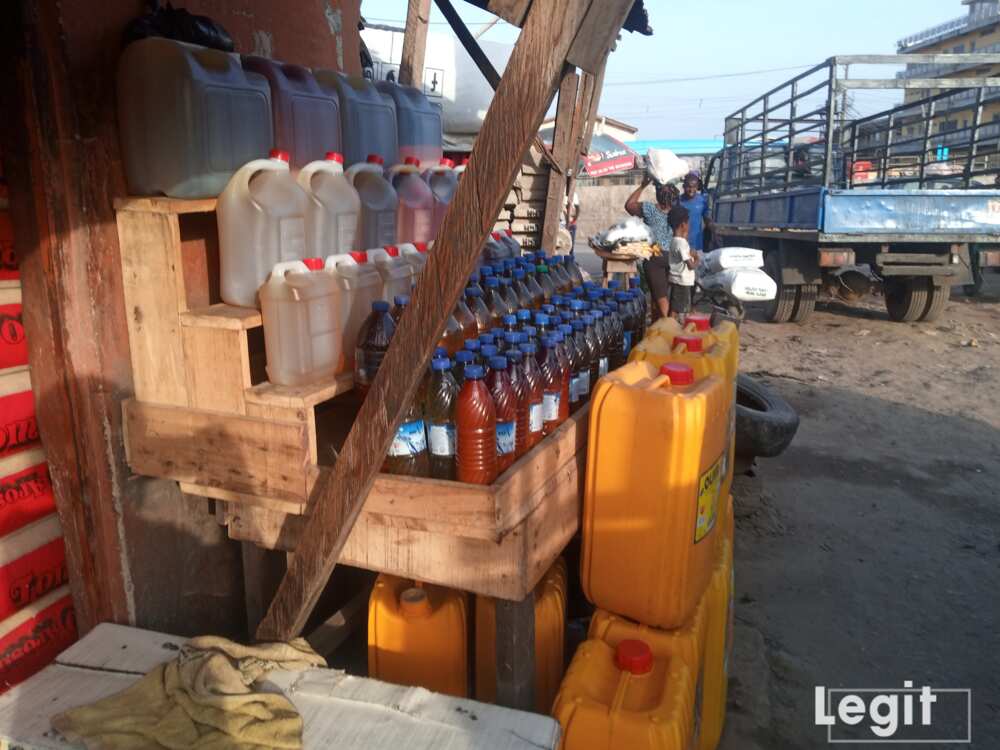
Source: Original
5. Vegetable oil/Palm oil
The list is incomplete without mentioning what is being used to prepare delicious delicacies. Vegetable oil and palm oil are major items whose cost price has skyrocketed.
At the moment, some traders sell a 25-litre of palm oil for N25,000 while others sell at a higher price of N28,000 upwards.
For groundnut oil, 25-litre of refill is sold from N25,000 and below while 25-litre of branded oil is sold from N26,000 upwards, depending on the market visited and the seller's choice.
Before Buhari's regime, 25-litre of vegetable oil and palm oil are offered for sale between N6,000 and N10,000, especially in major markets but at the moment now, the market situation is worse as the rise in the cost price of goods has become the order of the day.
Conclusion
Buhari is the 15th and current president of Nigeria, having assumed office on 29 May 2015. Following the 2023 Nigerian presidential election, Asiwaju Bola Ahmed Tinubu is scheduled to succeed Buhari as president on 29 May 2023.
As Tinubu prepares to take over, Nigerians are hoping for a miracle in all sectors, especially the economy.
Legit.ng weekly price check: “Nigeria inflation rate terribly affecting us,” Yam seller in popular Lagos market groan
Yam sellers are not having a filled day in Lagos market as the cost price of the produce rises.
Despite the fact that yam is in its season this period, the cost of its purchase is on the high side and traders are not happy.
The market this week is dull and dry, shops that are operating are not having a swell time as buyers are not trooping in and out as they ought to.
Source: Legit.ng


